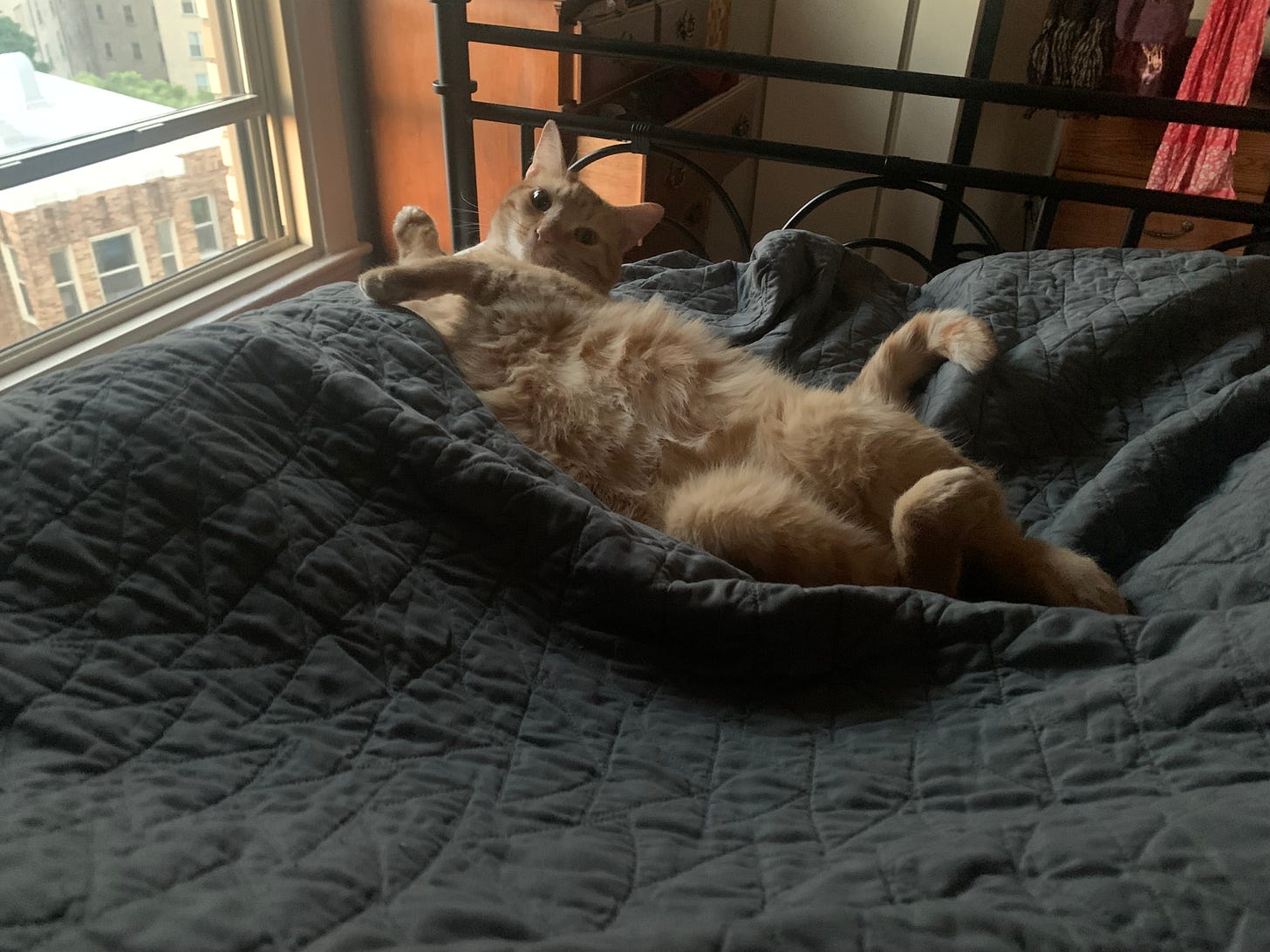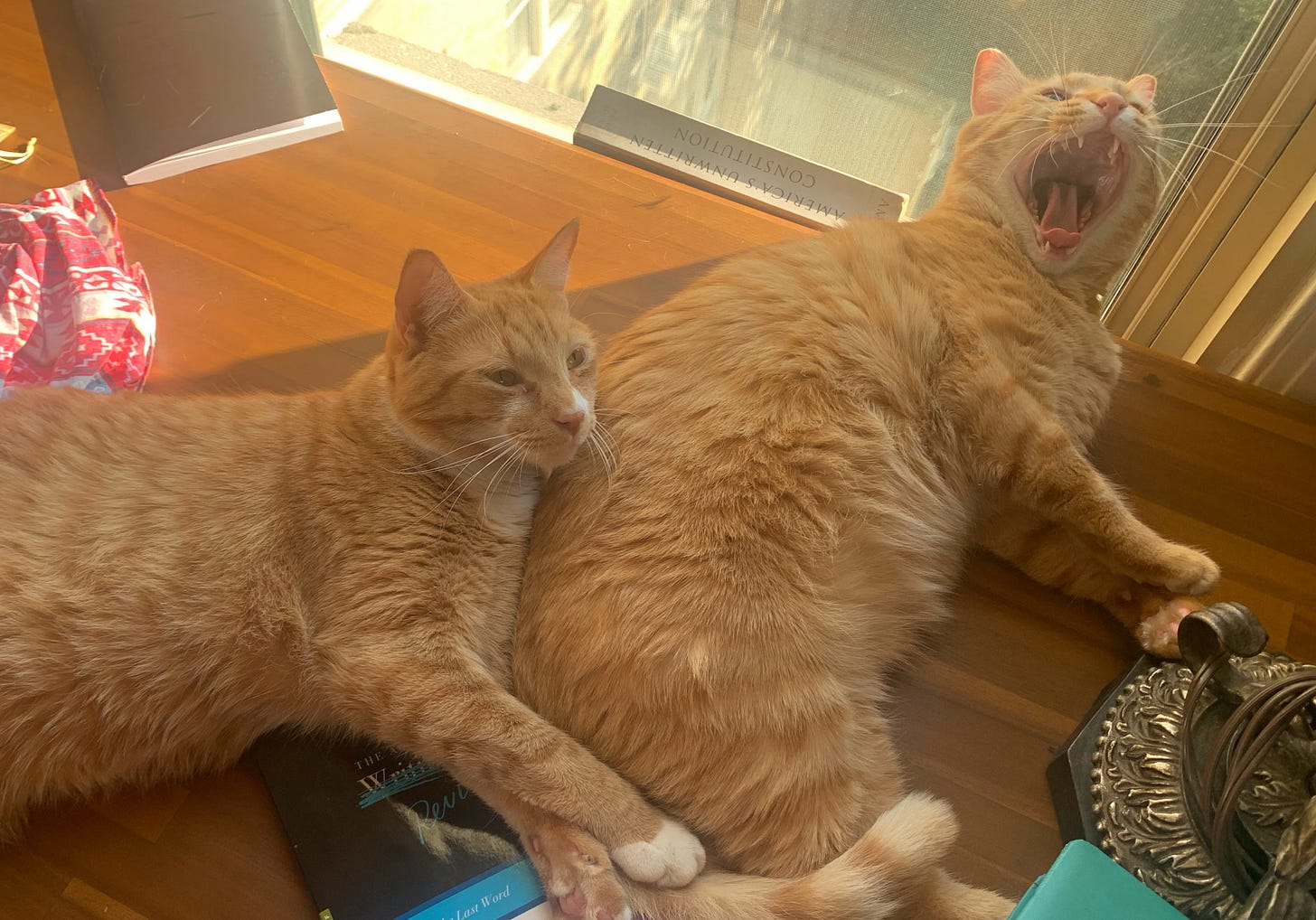Purple enough to make a doctor say “ew”
I love having a body. I think it’s fantastic. It can do all kinds of amazing things like stretch and dance and rub oil into skin. I try to remember my legs as often as I can. The flexible-ish hips that let me sit butterfly in the morning. I love running hard and breathing harder and then walking, letting it all calm down. In dreams, we can fly. In life, we all float from one room to another without thinking about it. The new big “thing” is here, and it’s way better than the segway that was going to change everything: it’s our feet.
I don’t understand it, really, the way our bodies work. I how, after spending a wild night thinking run! move! go! while paralyzed in bed, you can wake up in the morning, tell your body to rise, and it rises. If you think too much about ‘how’ running works you’ll trip all over your feet. So I lift my one foot with my hamstring—or with my thigh? and put it down up there but before it can be down I need to lift the other foot with the thigh—or is this hamstring? glutes?—in a way that also launches me forward and brings the foot to that other spot up there—what? And how in the world do we do this with obstacles, like branches or twigs or abandoned kiddie scooters?
I don’t understand how I can stand at the three-point line in basketball and make the shot—and I usually can’t, most of the time, but this week, for the first time in my life, I could. What? I stood there and threw the ball as hard as I could and made it in. Now, according to science, I need to do this 9,999 more times—(successfully, and if I fail, it starts over)—and my body will understand. And by body I mean brain.
You see this when you play against kids: their bodies know things, because they’ve only ever known them. Like how to get that ball in that hoop. Or maybe it’s just certain kids. We were shooting hoops on the Kalorama court when some young kids asked if they could join and we said sure. We could play around them, maybe, we could try to keep our game. We could pad out our teams with easy opponents. Then the small one picked up a ball and sunk a three-pointer right where he stood.
They trounced us, these kids. I mean for the first time in my life, I felt tall, but they had a handle on the ball we could only dream of. Between their skill and our size they were actually a perfect match, so the game got brutal. Close and physical. And who suffered? Seth broke his glasses and I broke a finger.
The finger didn’t hurt much, but it did get puffy and purple enough to make my doctor friend say “ew.” I fashioned a splint out of broken plastic forks. I promise you I told everyone I saw in the proceeding days about the intense game of basketball that gave me this valiant wound. No one asked the age of my opponents.
My biggest concern with the injury, though, was about writing. Would I still be able to type without my middle left finger? I thought about trying to write this newsletter without letters “e,” “d” or “c.” Short answer: Hell no. “E” is the most important letter in the world. So I had to teach my ring finger to take over. Suddenly this finger had a big job, doubling its output. Try writing “necessary” without your middle left finger. It was slow and filled with mistakes. But my hands caught up and soon I could type without thinking. I took a typing test on the end of day two and achieved 91 WPM. Almost as fast as my normal speed.
Still, when typing with this ring finger, weird mistakes happen. I keep mispelling “senatator” (like a senator mixed with a tator tot?). I’ll accidentally repeat the word “on” or just plain put in the wrong word, like “in” instead of “by.” When this happens, I wonder, who did that? The wiring is fried. But I ask this of myself often when I write. Words happen that could never happen verbally. Every once in a while I write a poem that doesn’t make me cringe. Even more rare, I write one I actually like. Who did that?
They say you need “muscle memory” to play basketball. They say make the same shot over and over until your muscles do the work for you. And I feel that. In the middle of a game, there’s no time to think. When you have a shot, you take a shot, and when it gets in, you’re amazed. Who did that? Your body did that. But muscle memory seems like the wrong term. It’s muscle forgetting. Muscle automating. Maybe writing and sports don’t mix because the way to be good at sports is to stop thinking. To turn the words off. But I have an instinct to try and understand everything, and the way I understand is with words, and when things don’t make sense, that’s fascinating to me.
I often take off my splint to admire the jammed finger. I like seeing its color deepen and spread, I like testing out the bend until my tendons say ‘stop.’ I think it’s so funny how our body talks to us that way. Every time it hurts my nerves are telling me to let it work, because all that purple is from blood, and all that blood is carrying healing magic, and by magic I mean science, I mean the unseen processes our bodies have evolved to perform.
The body knows more than we do. It’s had millions of years to learn. But how amazing is it, how absolutely incredible, that in our tiny little lives, we can teach it something new? Don’t try to understand. There are no words. Just do.
-Denise
Photogenic Mondo appreciation section




